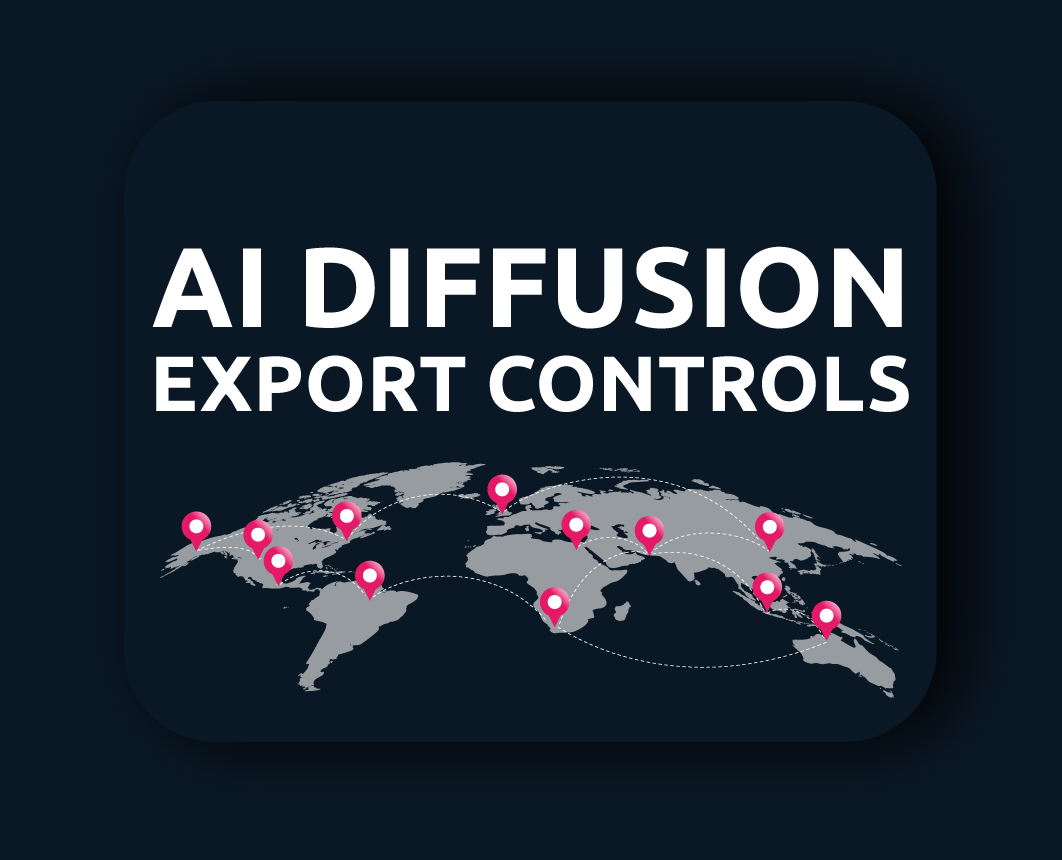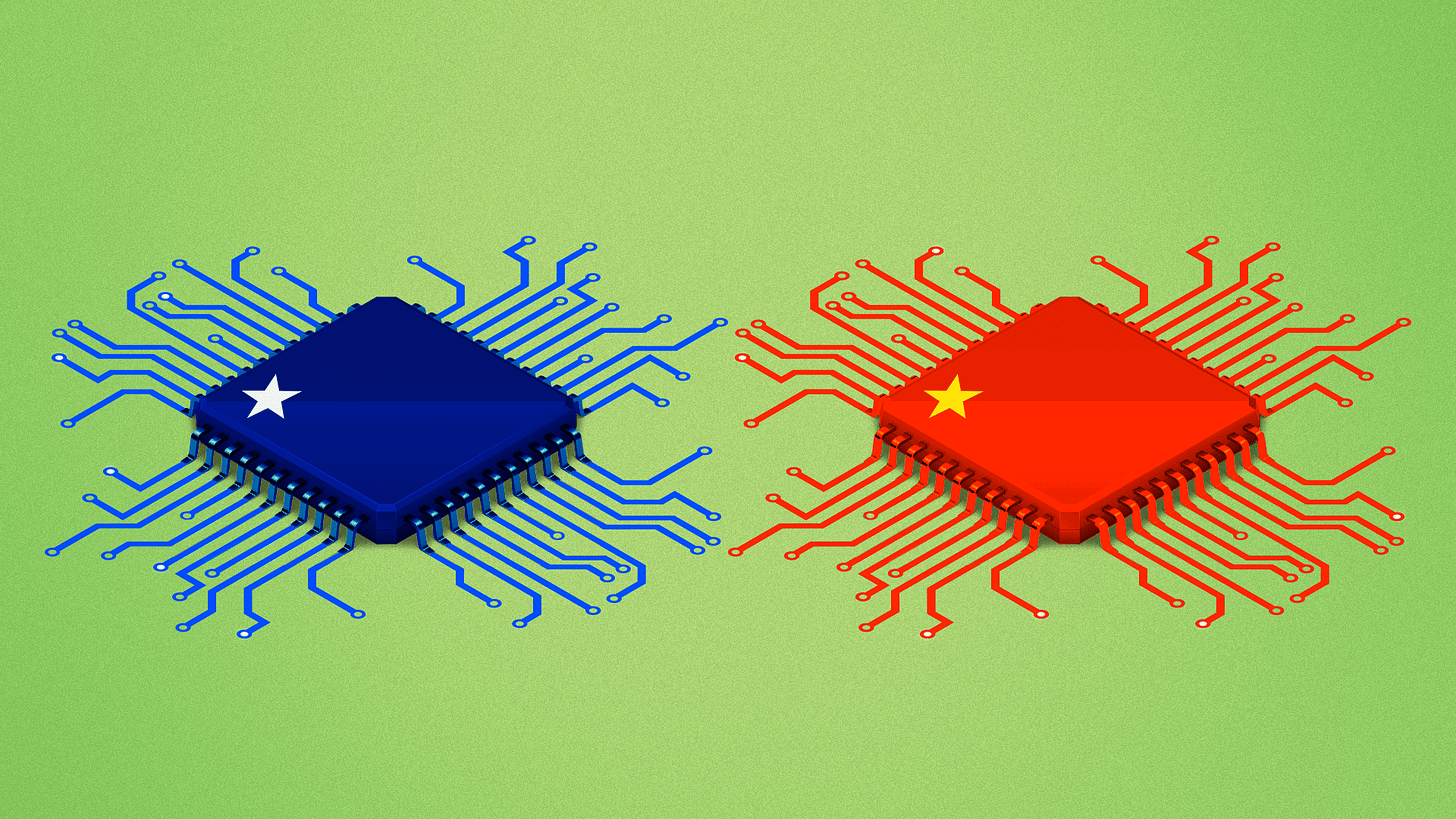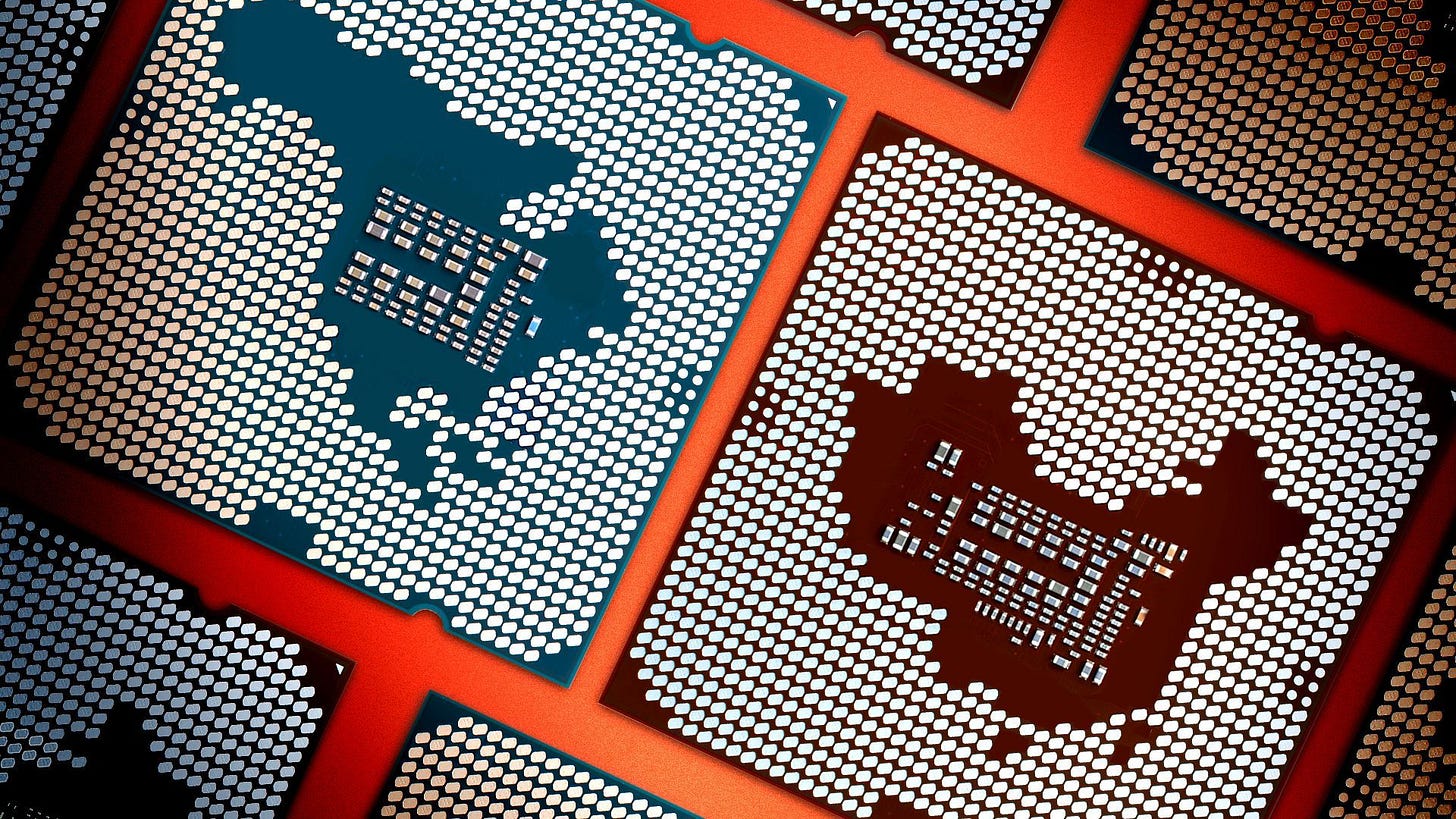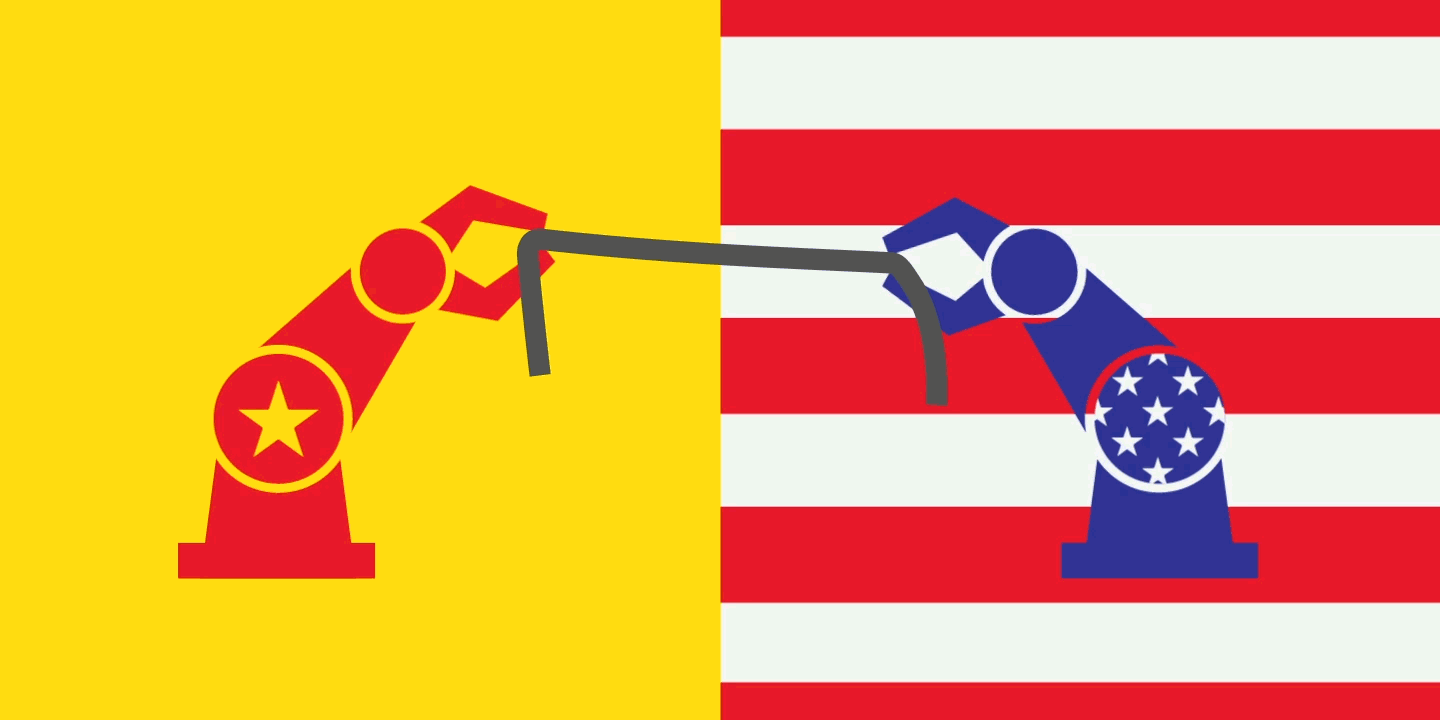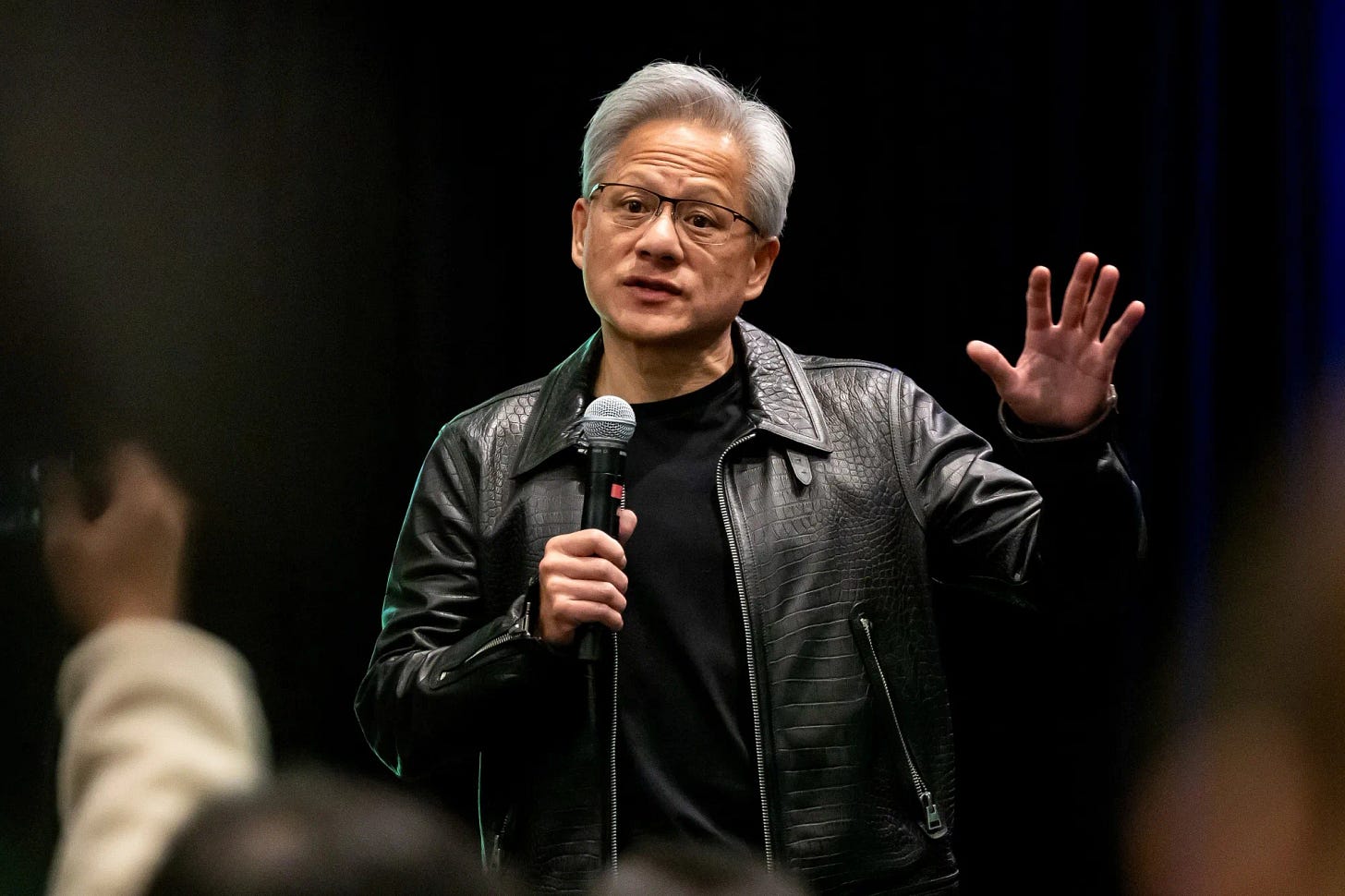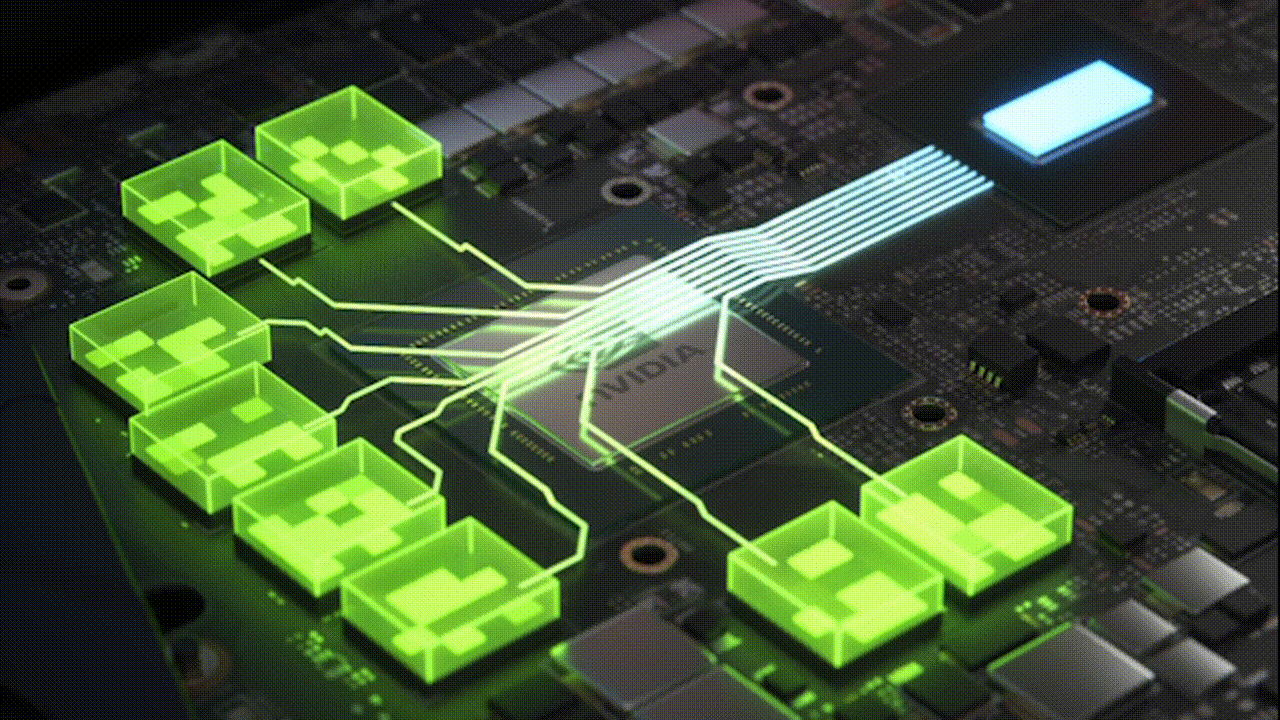
AI: Redo of Biden 'AI Diffusion Rules', a positive for US AI Tech. RTZ #714
I’ve emphasized for some time now that it was important for long-term US interests in this AI Tech Wave, for the Biden administration’s ‘AI Diffusion Rules’ to be modified. Especially for US AI infrastructure companies like Nvidia, AMD, and other semiconductor and AI Data Center companies in particular.
The Trump administration had until May 15 to decide how they wanted to proceed with these ‘unforced error’ rules by the preceding administration. And for now, in this instance at least, it appears as they may have chosen wisely. The ‘RealTekPolitik’ continues. Let’s unpack.
Bloomberg lays it out well in “Trump Plans to Rescind Biden-Era AI Chip Curbs”:
“The Trump administration plans to rescind some Biden-era AI chip curbs as part of a broader effort to revise global semiconductor trade restrictions that have drawn strong opposition from major tech companies and foreign governments.”
“The repeal of the so-called AI diffusion rule, which is not yet final, seeks to refashion a policy launched under President Joe Biden that created three broad tiers of countries for regulating the export of chips from Nvidia Corp. and others. The Trump administration will not enforce that framework when it takes effect on May 15, according to people familiar with the matter, and is instead drafting its own version of the rules that’s likely to focus on direct negotiations with nations like the United Arab Emirates or Saudi Arabia.”
The US under the Trump administration of course remains laser focused on curtailing China’s access to US tech, which has short-term negatives for US tech companies like Nvidia.
“The policy debate, which remains ongoing, centers on the question of how to regulate semiconductor shipments to places outside of China. Both Trump and Biden officials have sought to crack down on Beijing’s semiconductor ambitions, over concerns that advanced chip and AI technology could lend China a military edge.”
“Scrapping the AI diffusion framework won’t change the measures targeting China, which Trump recently toughened. Rather, it would provide fresh opportunities for other countries to negotiate their own chip access, as governments around the world seek to develop domestic AI capabilities. Those deals could be influenced by investment promises or broader trade and diplomatic considerations.”
The timing on next steps is getting a bit clearer, although the eventual new policies are not as clear:
“US officials could announce their intent to repeal the AI diffusion rule as soon as Thursday, one of the people said — ahead of President Donald Trump’s trip to the Middle East, where a number of nations have bristled at the latest restrictions. Trump’s replacement regulations, which the people said will aim to strengthen controls on chips abroad, are still taking shape.”
But the sound bites from Commerce are in the right direction:
“The Biden AI rule is overly complex, overly bureaucratic, and would stymie American innovation,” the Commerce Department’s Bureau of Industry and Security said in a statement released by a spokesperson. “We will be replacing it with a much simpler rule that unleashes American innovation and ensures American AI dominance.”
The stocks of course are reacting as one might expect:
“Shares of chipmakers rose after Bloomberg News reported on the move. Nvidia climbed 3.1%, and the Philadelphia Stock Exchange Semiconductor Index — a closely watched benchmark — gained 1.7%.”
All this underlines the multi-year battle underway between the two countries, a ‘thread the needle’ exercise that keeps getting more precarious:
“The US first imposed sweeping restrictions on advanced chip sales to China in 2022, and has ratcheted up those measures several times to encompass a broader swath of semiconductors and a growing list of countries. That included a 2023 expansion to more than 40 nations, including much of the Gulf and parts of Southeast Asia, where Biden officials suspected China could access banned technology via intermediaries. The AI diffusion rule, unveiled during Biden’s final week in office, expanded those licensing requirements to most of the world.”
“The framework was designed to further crack down on China’s ability to access US chips via third countries, and to bring more nations into the US orbit by setting security requirements to access best-in-class American technology. The rule included caps on total shipments to places like the UAE and Saudi Arabia, which already had to obtain US government approval for advanced chip imports under the 2023 regulations. It also imposed chip controls for the first time on dozens of countries, including India, Malaysia and Poland.”
It’s not all good news on unwinding the Biden AI measures:
“While Trump’s plan to not enforce the AI diffusion rule provides a temporary reprieve for those nations, some controls are likely still coming.:
“Trump officials intend to impose curbs on countries that have diverted chips to China, including Malaysia and Thailand, one of the people said. In the meantime, the Commerce Department will continue to strictly enforce existing chip export rules, according to the people, who asked not to be identified because the plans are not yet public.”
Nvidia for one has been clear on where it stands on these AI curbing rules:
“Nvidia, the leading maker of chips for training AI models, has objected to the growing number of US restrictions. The company has consistently derided the AI diffusion rule and pushed for its wholesale repeal, arguing that restrictions on third countries will only push them closer to China. Chief Executive Officer Jensen Huang also said this week that US companies should be able to sell into China, which he predicts will become a $50 billion market for AI chips in the next couple years.”
And things have not all gone their way:
“Still, the Trump administration has stepped up restrictions targeting Beijing’s tech ambitions. It already banned Nvidia from selling its H20 chip in China, a move that cost the company $5.5 billion in writedowns.”
“We welcome the Administration’s leadership and new direction on AI policy,” the company said in an emailed statement. “With the AI Diffusion Rule revoked, America will have a once-in-a-generation opportunity to lead the next industrial revolution and create high-paying US jobs, build new US-supplied infrastructure, and alleviate the trade deficit.”
Lot more uncertainty ahead for all:
“Much will hinge on the terms of bilateral chip accords that Trump officials could negotiate over the coming months. Reaching such agreements could prove a monumental task, and could result in dozens of separate policies by which companies must abide.”
“In the immediate term, though, the reprieve could be a boon to companies like Oracle Corp., which is planning a massive data center expansion in Malaysia that was set to blow past AI diffusion rule limits.”
And opportunities for new ‘announcements’ in the middle east in coming days with Trump’s trip there. Likely with US tech/AI companies in tow.
“The Trump administration’s move also would be welcome news for countries that were covered by earlier rounds of US restrictions, like the UAE and Saudi Arabia, but see fresh opportunities to negotiate better terms with the new team in Washington.”
“Trump has expressed interest in easing restrictions for the UAE, Bloomberg News previously reported, and he could announce the start of work on a government-to-government AI chip agreement when he visits the emirate during a broader Middle East trip from May 13 to May 16.”
“The UAE has been particularly active in pushing for such an accord, and has pledged to invest as much as $1.4 trillion in US technology and infrastructure over the next decade — a promise that bent the conversation in the country’s favor.”
There’s a few negotiating points on either side:
“The country tiers and associated chip export limits weren’t the only new policy in the AI diffusion rule. The framework also established export controls for AI model weights, which are the numerical parameters that software uses to process data and make predictions or decisions. The Trump administration’s plans for those curbs are under discussion.”
All of the above are but a sub-section of the broader impact of Trump Tariffs on US/AI Tech.
I’ve outlined my views on that front earlier. And all will likely evolve as geopolitics and ‘RealTekPolitik’ continue to intersect in the weeks ahead.
Whole new game, this AI Tech Wave, vs preceding ones. Stay tuned.
(NOTE: The discussions here are for information purposes only, and not meant as investment advice at any time. Thanks for joining us here)

